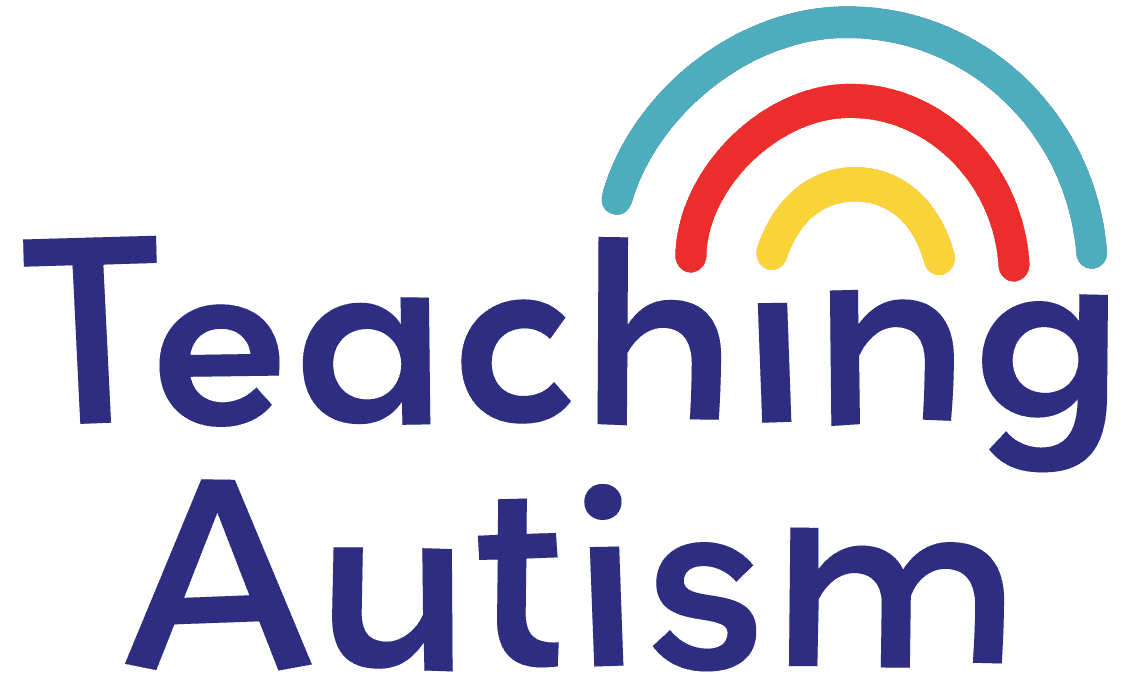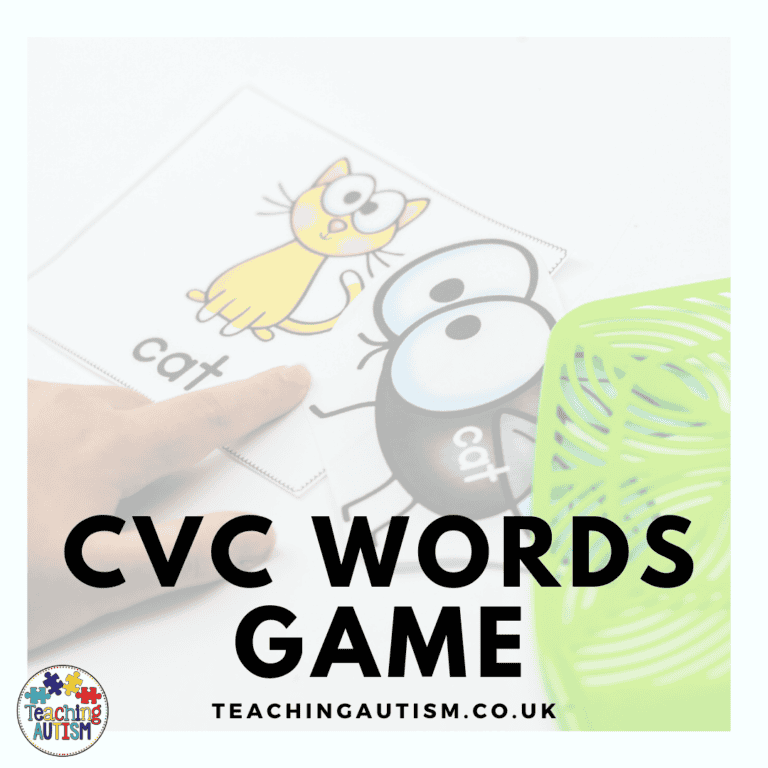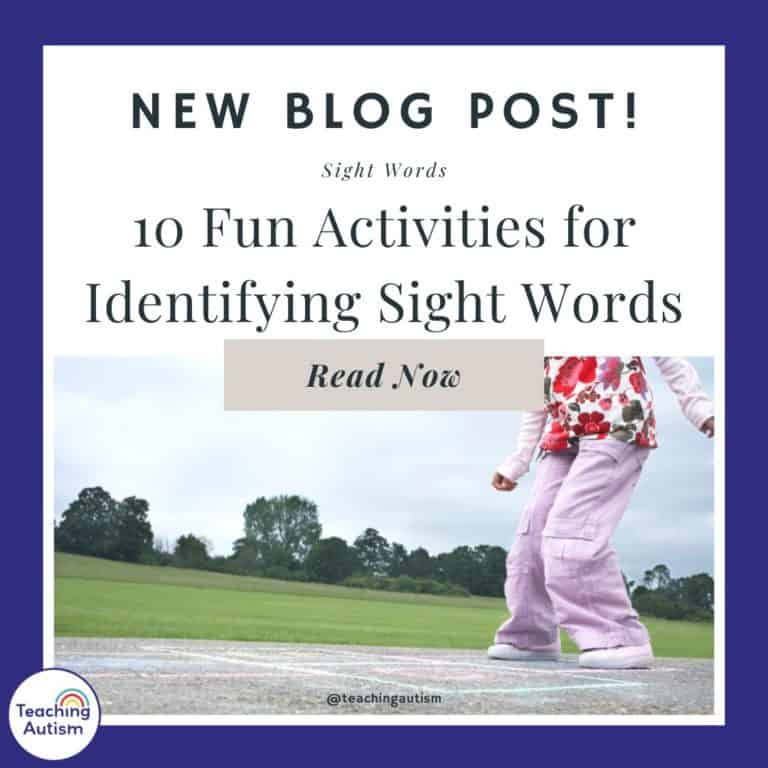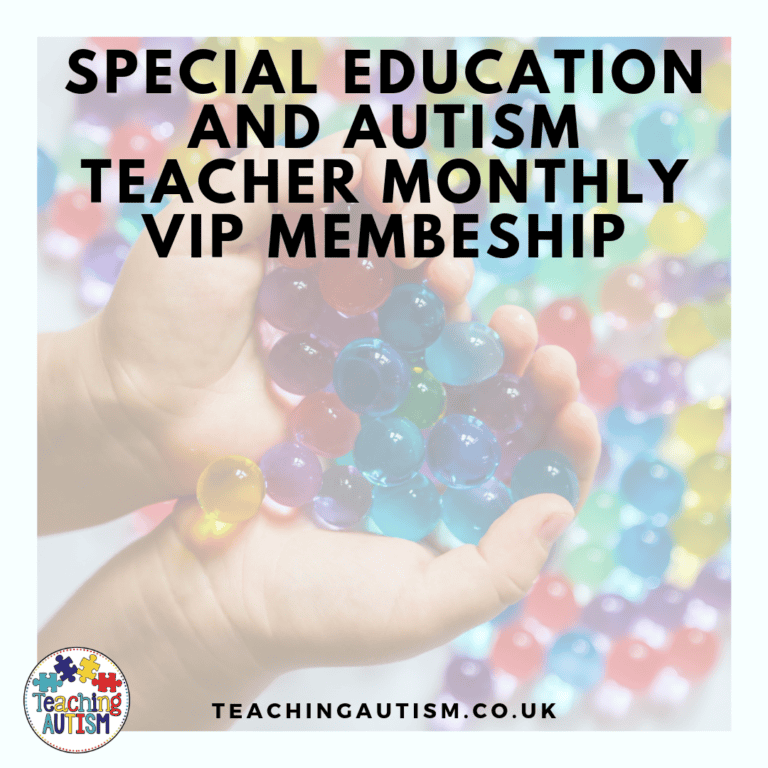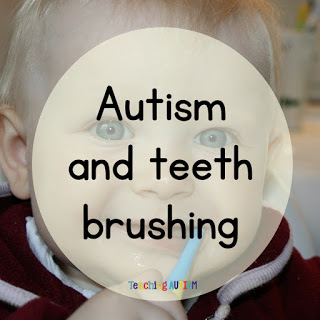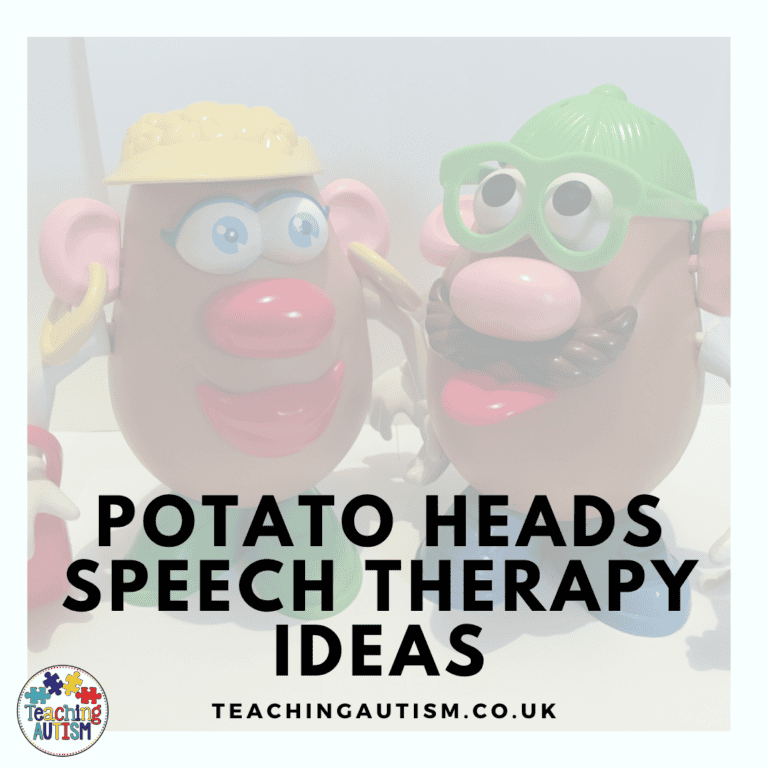10+ Special Education Life Skills Activities
Do you want to work on life skills in your classroom? Are you looking for hands-on special education life skills activities that your students will love? If so, you’ve come to the right place. Because today, I’m sharing my top 10 life skills activities that you can do in your classroom.
1. Washing Hands
One of the easiest skills that you can teach in the classroom. And you can work on it without really devoting extra time to it in your lesson plans. Get your class into the habit of washing their hands before they go to lunch. Before they take part in cookery sessions. After messy play, going to the toilet etc.
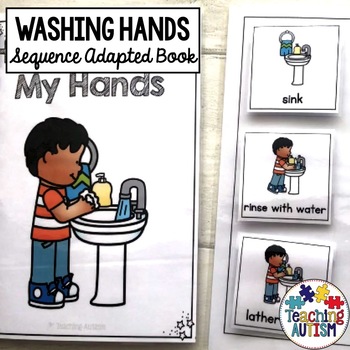
This adapted book is a great sequencing tool for you to use with your students to break down the steps needed for washing hands.
2. Brushing Teeth
Many schools are signed up now to receive free toothbrushes and toothpaste from local dentists. And having everyone together, brushing their teeth, is perfect for encouraging your students.
We love to play a ‘Brushing Teeth’ song – and you can find plenty on Youtube – to let the students in the classroom know that it’s time to brush our teeth. This is also a great skill to work on if it’s something that you know your students struggle with. And their families will be very grateful!
We also like to use the following resources;
3. Cleaning Up
It’s impossible for us to try and clean up everything ourselves. Let’s face it, 9 times out of 10 – we are outnumbered by our students! A really important life to teach them, from as young an age as possible, is to clean up after themselves. If they want to finish playing with the water beads and now they want to read a book – they have to tidy up first. Put the water beads away.
This is also true in other areas – like wiping down a table after dinner. Taking the dishes to the sink and washing them. All of these things will help prepare them for when they’re older and need to be cleaning up.
We love to use this adapted book to help our students understand how to clean up different messes.
4. Food Prep
Now whenever I mention this, I get a bunch of questions off people saying they can’t teach about food preparation because they don’t have a classroom kitchen or oven. Don’t worry, that’s ok. There’s still so many things you can do without these in your classroom.
Do you have a toaster? How about getting your students to take it in turns to make their own toast? Or a toastie maker? You can make sandwiches together.
Are you going on a field trip? Great – get your students to pack their own lunch box!
5. Money
Let’s face it – money is a very important part of our lives. And this adapted binder has been a life-saver for us. We’ve been able to work on matching coins and notes, working out costings, how to pay for things, counting money. And all of these are really important functional skills that students will need in the future.
How about setting up a little shop in your role play area? Have a cashier till there and get your students to work on paying for items. You could also try out a little cafe, like this one.
6. Getting Dressed
I don’t know about you, but this is a skill I love to try and teach first. You won’t believe how much easier life will be for you when your students are able to get dressed independently.
I’ve worked with students of a range of ages. But what I found the hardest working with the really young ones, was when they weren’t able to dress themselves. Let’s face it. Like we mentioned earlier, there’s more of them than there is of staff – usually. Which means staff have to go to each student, rotating through and helping them all get ready. And this is when we might be in a rush and not have time to help teach them – so we end up doing it ourselves.
But, if you spend time teaching your students how to get dressed independently – it’s going to pay off in the future, I promise.
Here are some on the resources we love to use to reinforce working on this skill;
- Getting Dressed Social Narrative.
- Dressing the Children Interactive Book.
- What to Wear in Different Types of Weather Social Narrative.
- Dressing for Winter Adapted Book.
7. Toileting
A very important life skill. Helping our students to be toilet trained. And this is a tough one – because with the other skills, you can pretty much find a way to start working on those instantly.
But, with toilet training, we have to wait for our student to show signs of readiness. It’s not something we can rush or decide to just start. For now, check out the following resources to help you with toilet training;
- Podcast Episode.
- Blog Post.
- Free Toilet Training Poster.
- Going to the Toilet Social Narrative.
- Toilet Training Resource Pack.
8. Shopping
Shopping is another important life skill. In order to have food, things to wear, drink, use etc. we need to go shopping. But, shopping isn’t an easy skill. We need to make a shopping list, follow it, pick up the items, pay for them etc.
If you get to go out on field trips, try to go to a shop to get a few things for class. I know it might not sound fun – but honestly, this is the perfect opportunity to work on more life skills. And a trip to the shop – that is going to work on so many skills!
Here are some of my best resources for working on shopping;
- Life Skills Adapted Binder.
- Farmers Market Adapted Binder.
- Shopping List Game.
- Going Shopping Social Narrative.
- Shopping Activity Pack.
- Grocery Shopping Task Box.
9. Washing and Drying Clothes
This is another life skill that can be overlooked in the classroom – often because we don’t think we can teach it. But, you definitely can!
This is where you’re going to get bonus points if you have a washing machine and dryer you can access in your classroom or school. You can take your students cookery aprons, class tea towels etc. here once a week (or as needed) for students to wash and dry.
You can print out visual sequences for your students to follow – putting the washing into the washing machine, adding the washing liquid etc.
If you don’t have access to either of these – don’t panic! There’s still lots you can do. You can ask parents to send in old socks/clothes they don’t need. Then, have your students match the socks together. Get your students to ‘hang’ washing on a line – if you don’t have one, make up a little game in class for this.
You can also use this life skills binder which has a whole section about washing dirty clothes, hanging up wetting clothes, collecting clean clothes etc.
10. Putting Stuff Away
Oh my goodness, I don’t know many times we would try and look for something and couldn’t find it. And often, this would happen after we’d asked students to help us tidy up. They had done it – but they didn’t know where things belonged! So often they would just put them anywhere that made sense to them.
And we’re all different. Half of us store our eggs in the fridge, half of us keep them in the cupboard. So, you can imagine the same thing with different items around the classroom – we could all probably store things in different places. But that’s not helpful when you need something – and you can’t find it. But you also don’t want to stop your students helping you to tidy up – because that’s an important skill for them to work on.
So, it’s important to teach your students all about things having a place. Now, one of the best ways to do this is to ensure you have labels for your classroom that your students can use to see where things belong. This will help take a lot of the stress away.
You can also work on activities like these task cards for students to work on understanding where things belong – and where to put them.
Some other ideas of ways you can work on life skills in the classroom are;
- Cookery sessions.
- Cleaning doll faces.
- Brushing doll hair.
- Dressing teddies/dolls.
- Behavior management and calming yourself down. Click here for a freebie.
- Working on rooms of the house. Click here for adapted books.
- Our five senses. Click here for adapted books or here for task cards.
- Things that belong together. Click here for activities.
- Sorting day and night activities. Click here for sorting task cards.
- Learning about the body. Click here for activities.
- Staying healthy – and looking after ourselves.
- General hygiene.
- Communication. Click here for a range of communication resources.
- Purchasing items. Click here for task cards.
- Ordering in a restaurant. Click here for a social narrative and here for an activity.
- Feelings and emotions recognition. Click here for resources.
- Tying shoelaces.
- Zipping up and buttoning up clothes.
- Matching socks and shoes together.
- Making self a drink.
- How to use the microwave.
- Using a hoover/vacuum cleaner.
- Working on needs and wants.
- Name work.
- Working on personal information.
- Getting changed for activities – like PE, Swimming etc. Click for social narratives; PE, Swimming.
- Managing and looking after own belongings.
- Putting on and taking off shoes.
- Discussing social situations – What happens next? How do you think they feel? Click here for a scenario resource to try. Click here for an empathy resource to try.
- Recognizing emergency situations – and who to call.
- Staying safe – stranger danger, crossing streets etc. Click here for a social narrative about strangers. Click here for a resource for crossing street safely.
- Greeting others. Click here for a social narrative.
- Coping with change.
- Ability to follow routine and sequences.
- Money – how to earn, spending, budgeting etc.
- Healthy diet. Trying new foods. Click here for a social narrative on healthy eating, and here for one on trying new foods.
You may also like this blog post to learn more about what life skills are.
Do you teach about life skills in your classroom? What are some activities you like to do? Let us know in the comments down below.
If you found this blog post helpful, please consider sharing it on social media with your friends and colleagues.

